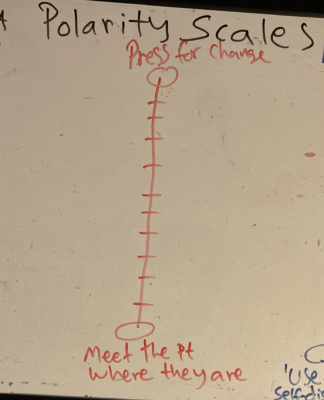In line with Carl Gustav Jung’s reflections on a psychology with or without a psyche, the following reflections point to what is at stake: a psychology that denies the reality of the psyche, or soul, or a psychology that recognizes the soul as real (Modern Man in Search of a Soul, 2001).
When the naturalist tries to argue against the existence of a self by asking you to locate this self, he is creating a straw-man like argument. No reasonable person believes there is a little person in the brain, that the self is a noun, a “thing.”
When the light of consciousness flickers on, that consciousness differs from a robot because the consciousness can reflect on this very consciousness. You are conscious of thoughts, feelings, sensations, perceptions, and you are conscious of being conscious of these phenomenon.
You are not conscious of another’s thoughts and feelings in the same way. Thus, there is an island of conscious presence that notices the world, internal and external.
This consciousness reflects, sorts through ideas, experiences, and seeks to make sense of experience. The self creates a binding, organizing structure for experience. It ensures you know what are your memories as opposed to the memories of your spouse. It ensures a continuation and unity of experience where you can make future plans, recall these plans, and follow through on those plans — something that would not be possible if there was truly nothing permanent and fixed in the person.
Cross modal perception and comprehension also points to the error in denying the reality of the self. I can hear the sound of an airplane, see the airplane ripping through the sky, and I understand the sound and the visual have the same source — the airplane. If there was nobody home and we were but an impersonal stream of experiencing — where nothing of the last moment remains into the next moment in a supposed endless stream of flux and impermanence — there would be no ability to connect sound and sight as related to the same thing. A comprehending subject, or agent, is needed in order to accomplish cross-modal perception and comprehension.
The living self is an island of conscious presence, and we know it in ourselves and others when we see “the lights being on,” suggesting that “someone is home.”
The observer, the experiencing subject is the self. This living self is a seeing, a vantage point, and a qualitative sense of “what it’s like” to be you.
It’s not a noun per se, at least in the material sense. It’s no more material than a thought or feeling is material. It is certainly not an automation, a collection of impersonal and empty aggregates and groupings of bio-psycho processes (the Buddhist view) but instead the self that we are is a sensing, feeling, reflecting, living presence — instinctual, affective, and reflective.
This living self has a modest measure of volition, of course compromised by a host of impinging causes and conditions.
The reductionistic, mechanistic, deterministic, and materialistic point of view will never grasp this. These views, which the materialist and the Buddhist share alike, denigrate the reality of this living and experiencing presence with their denial of self-nature.
This living self, this psychological, biological (and possibly spiritual) being is what psychotherapy concerns itself with helping. How pointless to help an ultimately empty collection of impersonal bio-psycho processes, an automation. Therapists with this view may be better off working on inanimate objects such as cars rather than sentient beings.
This being, the soul that we are, has feelings and needs, can be traumatized, often has a role in its own continued re-traumatization, and is often in need of psychotherapeutic assistance. Seeing this being as ultimately empty and a collection of impersonal structures negates and demeans the human spirit itself — the very being, the very psyche, that psychology concerns itself with. It quite literally takes the psyche out of psychology, to again harken back to Jung’s reflections.
This is why I categorically reject any and all views that deny the reality of the living self, a self that paradoxically blossoms and comes into maturity the more it’s “forgotten.”

 I have a passion for practicing ISTDP informed psychotherapy and I enjoy writing about it. For more information and what I do, visit my website: www.johanneskieding.com
I have a passion for practicing ISTDP informed psychotherapy and I enjoy writing about it. For more information and what I do, visit my website: www.johanneskieding.com


















